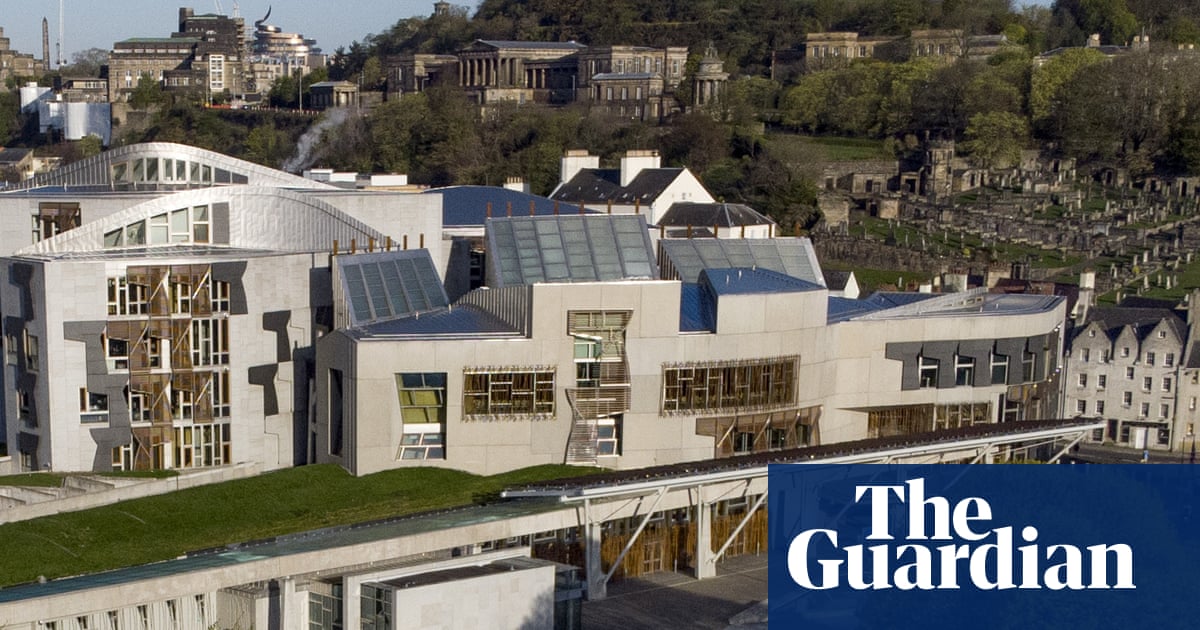Nearly 50 MSPs and their staff have signed a letter to the governing body of the Scottish parliament expressing “deep concern” about its decision to ban trans people from using the toilets of their lived gender in the building.
Alison Johnstone, Holyrood’s presiding officer and chair of the Scottish parliament’s corporate body, set out the interim position earlier this month in response to the supreme court’s ruling on biological sex.
Toilets designated as male- or female-only are now to be interpreted as meaning biological sex, Johnstone said, while the parliament will increase its existing provision of gender-neutral facilities which will be open to anyone, in an effort to ensure “confidence, privacy and dignity” for staff and visitors.
But the letter, based on legal advice from the Good Law Project, argues that Holyrood has misinterpreted the supreme court judgment.
It goes on: “The designation suggested in the guidance issued is that male and female spaces will be applied ‘by biological sex’. We would argue that the application of this is not only deeply invasive – it raises immediate questions about enforcement. We ask, non-rhetorically, on what basis are staff expected to prove their sex to use a toilet?”
The letter says this approach “risks exposing [trans people], and anyone who may be gender non-conforming, to humiliation, harassment or worse – all under the guise of ‘clarity’.”
The letter, which is now available online for other MSPs and parliamentary staff to add their names to, has already been signed by a number of former Scottish government ministers including Elena Whitham and Emma Roddick, the deputy leader of the Scottish National party, Keith Brown, and the leaders of the Scottish Lib Dems and the Scottish Greens, Alex Cole-Hamilton, Lorna Slater and Patrick Harvie. It has the support of MSPs from four of the five main parties at Holyrood, including the former Labour leadership contender Monica Lennon.
Hannah Bardell, the former SNP MP who organised the letter working with the Good Law Project, said she expected more Holyrood politicians and staff to sign up now that the concerns had been made public.
“I’ve spoken to many MSPs who feel huge concern about this decision. I hope this can move the debate forward and that the corporate body can rethink their decision just like other organisations have done,” she said.
“It’s very sad that the question of how trans people live their lives has become so toxic that the very people who represent them feel nervous about signing a letter like this.”
Sign up toHeadlines UK
Get the day’s headlines and highlights emailed direct to you every morning
after newsletter promotion
The decision leaves Holyrood out of step with other parliaments across the UK, with current policies at Westminster, Stormont and the Senedd remaining unchanged until final guidance has been handed down by the Equality and Human Rights Commission. That guidance is now expected to be delayed until after the summer to allow for further consultation.
A spokesperson for the Scottish parliament said this was an interim stance and further practical changes may be needed in light of an updated code of practice from the EHRC.
They said: “We will therefore consult with staff, their trade union representatives, members and other stakeholders, including equalities groups who work regularly and closely with people with protected equalities characteristics, at an appropriate point.”
